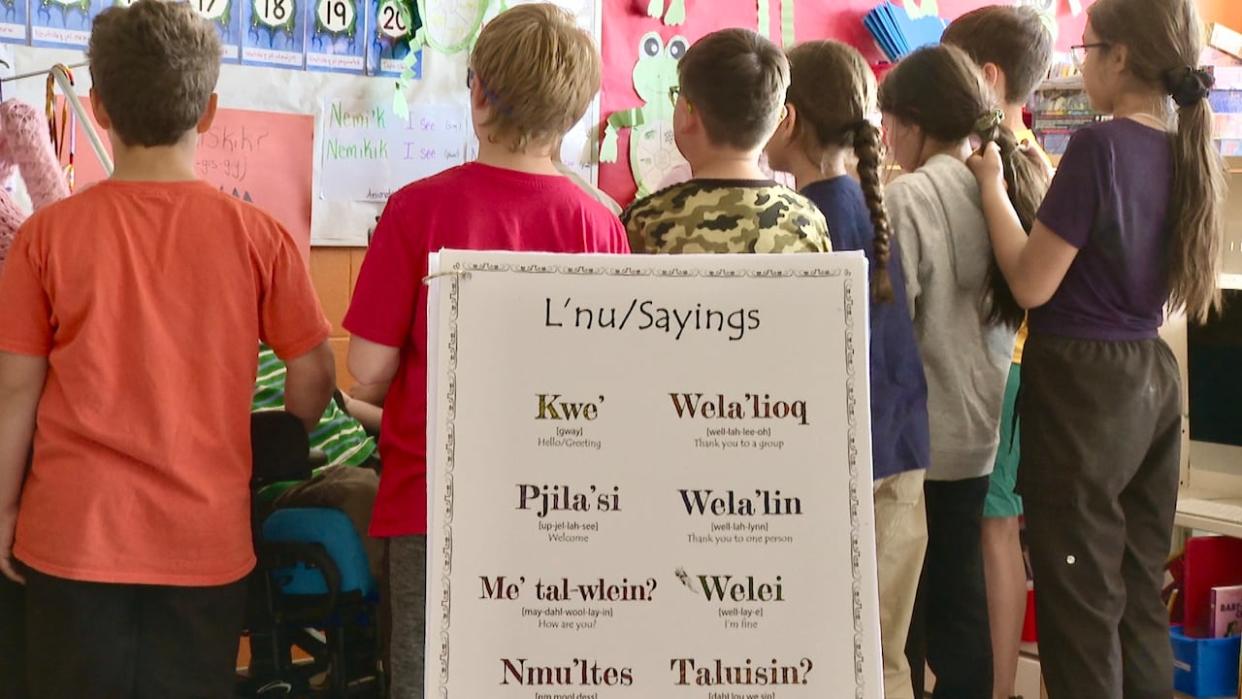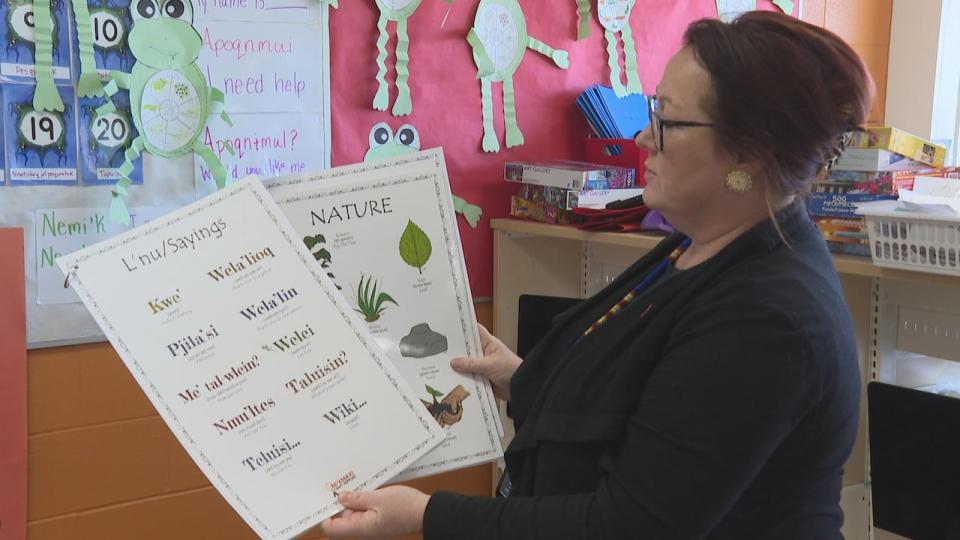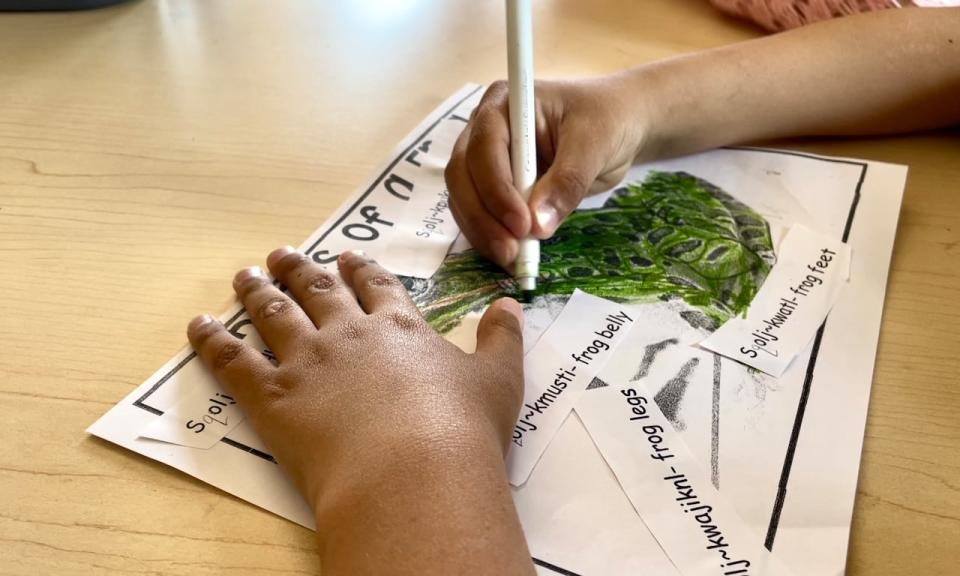How Lennox Island is revitalizing the Mi'kmaw language, one generation at a time

It's not unusual these days to hear students speaking Mi'kmaw at John J. Sark Memorial School on Lennox Island First Nation.
"Wela'lioq," says a classroom of students in unison, which means "thank you."
"Nmu'ltes," they say. That means "see you later."
Over the past few years, the community has been taking steps to revitalize the Mi'kmaw language on Lennox Island. Kids are learning it in daycare and in school. Mi'kmaw signs are also stationed throughout the community.
"It's really nice because elder community members notice when the students are using the language and are coming home to share what they've learned, sharing phrases, they're identifying animals," said Kim Colwill, the First Nation's director of education.
"They're using the Mi'kmaw language and it's beautiful."
'Really important for our kids'
Practising Mi'kmaw culture, including everything from drumming to speaking the language, was illegal at the Lennox Island First Nation's school as recently as the mid-1980s.
But now, it is quite the opposite. The language is everywhere. The school's mascot is the Muin, or "bear," and reminders of how to say phrases such as "can I get a drink of water?" are always nearby.
"We know that it's really important for our kids to be immersed in the language," said Jamie Thomas, Lennox Island's director of culture and tourism.
"So we're working really hard to make that a reality."

'Their culture and language is beautiful and we love learning with them,' says Kim Colwill, Lennox Island's director of education. (Sheehan Desjardins/CBC News)
The focus these days is on including the language as much as possible during routine activities.
Colwill said the school has a language teacher dedicated to teaching Mi'kmaw. In many cases though, homeroom teachers are learning it alongside their students.
"It is the expectation of staff within the school to carry on the language that's been learned during those sessions," she said.
"So different greetings, asking questions, basic phrases, numbers, colours, weather — all of those pieces are an expectation."
'Language is part of who we are'
It's becoming a similar story in the greater community, too. For example, a typical stop sign says "Naqa'si" in place of "Stop."
"We're actually going to redo all of the signs and so they'll be in the Mi'kmaw language," Thomas said.
"It's just really exciting because a lot of people are jumping on side and people really want to learn our language because, at the end of the day, language is part of who we are."

Jamie Thomas, the First Nation's culture and tourism director, says some of the students can speak better Mi'kmaw than she can. (Sheehan Desjardins/CBC News)
Both Thomas and Colwill agree the efforts appear to be working. They said they are hearing it more and more in the community these days, especially from younger Epekwitnewaq — residents of Epekwitik, the traditional Mi'kmaw name for Prince Edward Island.
"Their culture and language is beautiful and we love learning with them," Colwill said. "I can't wait to see what it'll look like in 10 years for the students."
"In some cases, they can speak better Mi'kmaw than I can," added Thomas with a laugh.
And as special as it is to see a new generation bringing the language back, Thomas said is also pretty incredible watching an older generation connect with them.
"You question yourself as to whether or not I'm doing it right, and it's not about that. It's just about doing it," she said.
"There's no room for criticism when it comes to learning the language because it's all about the effort and the final intent, which is to be able to speak to each other."


